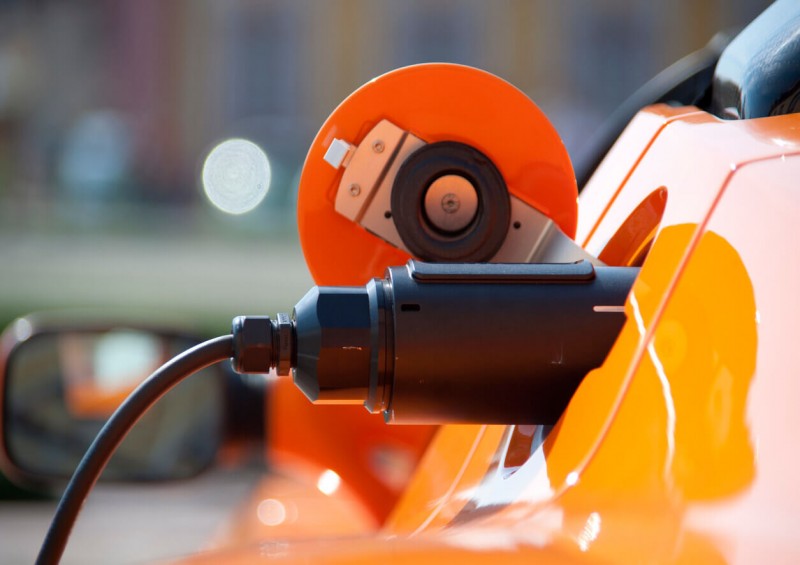How to Charge an Electric Car

With the impending 2030 ban on fossil-fuelled cars and electric cars being cheaper to run, you’re perhaps considering buying a new electric vehicle (EV). However, most of you will no doubt have concerns about how and where to charge an electric car if you were to buy or lease one.
So we’ve put together this Q&A guide to answer any EV pre-purchase questions you may have about all the different places and ways to charge an EV, and roughly how long it will take to charge an electric car.
In this guide:
How do you charge an electric car?
Where can you charge an electric car?
How much does it cost to charge an electric car at a charging station?
Can I charge an electric car at home?
What is the average time it takes to charge an electric car?
How do electric cars work?
When you plug your car into an electric charger, the electricity is stored in a rechargeable battery. The traction battery (aka ‘Electric Vehicle Battery’ or EVB) pack then supplies this stored electric energy to power the EV’s motor, which, in turn, moves the wheels.
So instead of running low on ‘fuel’ (like you do in a traditional fossil-fuelled vehicle), you will instead run low on ‘battery power’ (like your mobile phone).
How do you charge an electric car?
You charge your electric vehicle by plugging it into an electric charging point or unit and leaving it to charge for as long as necessary for your next car journey(s). Most EV drivers tend to top up electric, if they can, wherever they park during the day and then give their EVB a full charge, overnight, at home.
Where can you charge an electric car?
There are over 20,000 electric charging points in the UK where you can charge your electric vehicle. You can easily find this by using an app like ZapMap.
Most major supermarket car parks, fuel stations, popular hotels, restaurants and landmarks now have electric charging points in place, as do many public car parks.
And of course, apart from charging in public, you can also charge your car at home (see below).
How much does it cost to charge an electric car at a charging station?
Charging an EV at a charging station in the UK will cost you approximately 30p per kWh. To fully charge an electric car’s battery from empty to full at a charging station will cost you approximately £30, so that’s just £30 for a full battery charge!
The above calculation is based on a Tesla Model S or Model X, both of which have EVBs that can store up to 100kWh.This amount of stored power will allow your EV to run for approximately 300 miles before requiring another charge.
Can I charge an electric car at home?
Yes, you can pay for an electrician to install an electric car charging unit at your home. Installation costs can be in the region of £1,000.
However, to encourage more people to use EVs, the government’s Electric Vehicle Homecharge Scheme is offering grants of up to 75% off the cost of installing an EV charging point in your home, from one of their pre-approved suppliers and installers.
Ideally, you should store an electric vehicle in an insulated and/or heated garage in winter to protect your EVs battery from the cold, as this can affect your car battery’s performance.
What is the average time it takes to charge an electric car?
The average time it takes to charge a middle-of-the-road electric car with a 60kWh battery is approximately 8 hours (from empty to full). However, most EV drivers tend to ‘top-up’ their electric when they park and will usually fully charge their EV at home during the night.
Obviously, the bigger your car battery is, the more time it will take to fully charge, and the time taken will also be affected by how powerful the charging point is.
So whilst fully charging electric cars takes longer than filling a car’s tank up with fuel, bear in mind that if you charge your car at home overnight, you will only need to top up your battery during the day for longer journeys.
That said, the average time for charging an electric car goes out of the car window if you’re lucky enough to own a Tesla Model S or Model X. Tesla has provided a network of around 300 ‘supercharger’ charging points costing around 24p per kWh, which can provide a huge 80% charge in as little as 30 minutes.
To sum up, charging an EV in the UK is becoming increasingly easier than it used to be and if you install an electric home charging unit, you should never have to worry about your battery running out of electricity.
For more information on EVs, see our related guides below.
